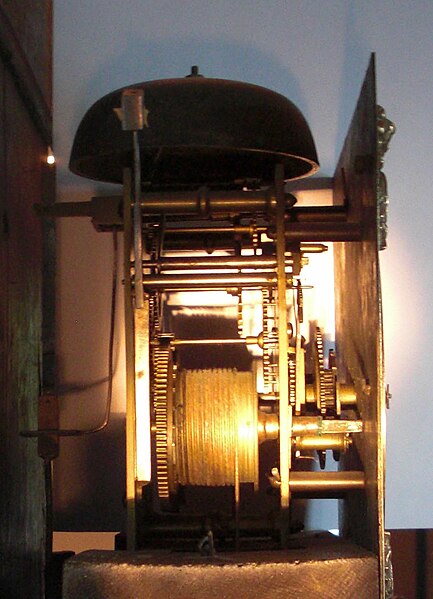Thomas Tompion, FRS (1639–1713) was an English clockmaker, watchmaker and mechanician who is still regarded to this day as the "Father of English Clockmaking". Tompion's work includes some of the most historic and important clocks and watches in the world, and can command very high prices whenever outstanding examples appear at auction. A plaque commemorates the house he shared on Fleet Street in London with his equally famous pupil and successor George Graham.
Engraving of Thomas Tompion by John Smith, after a portrait by Sir Godfrey Kneller
Plaque in Fleet Street, London, commemorating Thomas Tompion and George Graham
Sundial made by Thomas Tompion at Hampton Court Palace, c. 1680
Ornate clock (known as the 'Mostyn Tompion') made by Thomas Tompion in the British Museum, 1690 AD
A clockmaker is an artisan who makes and/or repairs clocks. Since almost all clocks are now factory-made, most modern clockmakers only repair clocks. Modern clockmakers may be employed by jewellers, antique shops, and places devoted strictly to repairing clocks and watches. Clockmakers must be able to read blueprints and instructions for numerous types of clocks and time pieces that vary from antique clocks to modern time pieces in order to fix and make clocks or watches. The trade requires fine motor coordination as clockmakers must frequently work on devices with small gears and fine machinery.
Lateral view of a Timothy Mason longcase clock movement with striking mechanism, c. 1730
View inside the Relojes Centenario factory in Zacatlán, Puebla Mexico
Finnish School of Watchmaking, Leppävaara, Espoo
The statue of the clockmaker-locksmith (by Jean Cuypers – 19th century) – Brussels








